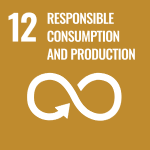Document Type
Article
Publication Date
12-6-2011
Keywords
class, cultural repertoire, ethical consumption, food
Abstract
Ethical consumption is understood by scholars as a key way that individuals can address social and ecological problems. While a hopeful trend, it raises the question of whether ethical consumption is primarily an elite social practice, especially since niche markets for ethical food products (for example, organics, fair trade) are thought to attract wealthy, educated consumers. Scholars do not fully understand the extent to which privileged populations think about food ethics in everyday shopping, or how groups with limited resources conceptualize ethical consumption. To address these knowledge gaps, the first goal of this paper is to better understand how consumers from different class backgrounds understand ethical eating and work these ideas into everyday food practices. We draw from 40 in-depth interviews with 20 families in two Toronto neighborhoods. Our second goal is to investigate which participants have privileged access to ethical eating, and which participants appear relatively marginalized. Drawing conceptually from cultural sociology, we explore how ethical eating constitutes a cultural repertoire shaped by factors such as class and ethno-cultural background, and how symbolic boundaries are drawn through eating practices. We find that privilege does appear to facilitate access to dominant ethical eating repertoires, and that environmental considerations figure strongly in these repertoires. While low income and racialized communities draw less on dominant ethical eating repertoires, their eating practices are by no means amoral; we document creative adaptations of dominant ethical eating repertoires to fit low income circumstances, as well as the use of different cultural frameworks to address moral issues around eating.
Faculty
Faculty of Humanities & Social Sciences
Journal
Journal of Consumer Culture
Volume
11
Issue
3
First Page
293
Last Page
318
Version
Publisher's version
Peer Reviewed/Refereed Publication
yes
Copyright
© Johnston, Szabo & Rodney, 2011
Terms of Use
Terms of Use for Works posted in SOURCE.
Creative Commons License

This work is licensed under a Creative Commons Attribution-Noncommercial-No Derivative Works 4.0 License.
SOURCE Citation
Johnston, J., Szabo, M., & Rodney, A. (2011) Good food, good people: Understanding the cultural repertoire of ethical eating. Journal of Consumer Culture 11(3), 293–318. doi:10.1177/1469540511417996
Included in
Civic and Community Engagement Commons, Food Studies Commons, Other Social and Behavioral Sciences Commons, Politics and Social Change Commons




